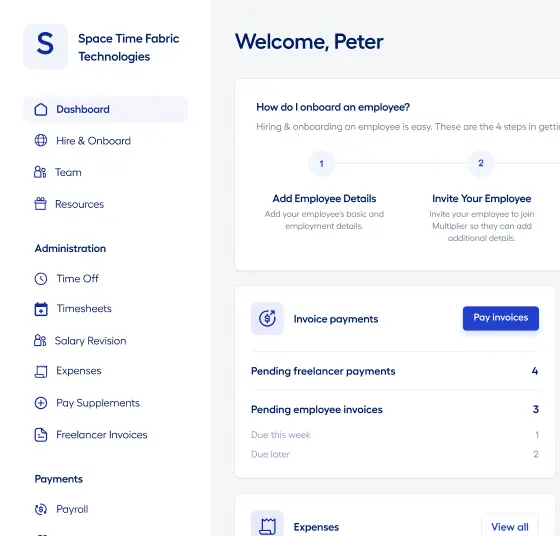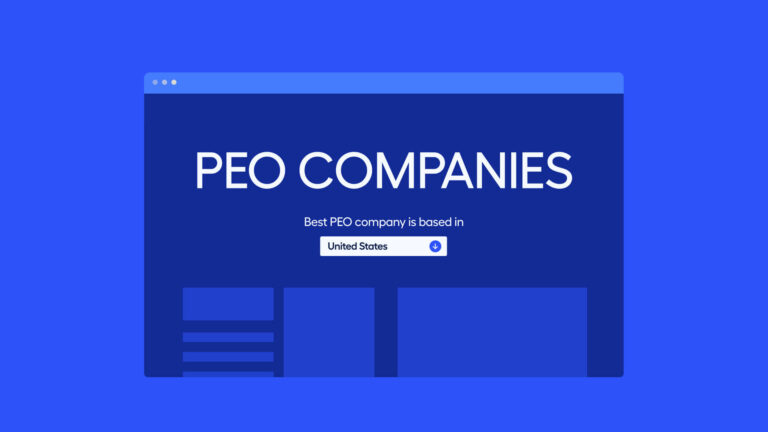Engaging in cross-border trade and business activities has its advantages. However, it comes with a fair share of risks. From national conflicts to the dynamic political, economic, and regulatory environments worldwide, international business risk factors and challenges make it difficult for companies to maintain consistent growth and revenue.
Although the meaning of business risk is contextual, the general implication is a decline in business performance or a significant dip in projected returns.
The risks of doing business overseas comprise of price distortions due to supply shifts, resource reallocation, loss in capital, diminished earnings, etc. Given the vulnerabilities associated with international business, cross-border expansion calls for increased focus on risk identification, assessment, and mitigation.
International Business: Risks and Challenges
While every nation presents opportunities for overseas investors and companies, the international business market is volatile and dynamic, with unprecedented risks.
However, risks in international business are not restricted to one region. When companies engage in cross-border trade and economic activities, they face challenges on multiple levels, from country-specific trade restrictions to international trade laws.
Here is a list some key international business risk factors companies encounter when expanding overseas.
Foreign exchange risk
Foreign exchange risk refers to the fluctuation in investment value due to currency exchange rate changes. Also known as exchange rate risk, currency risk, or FX risk, it implies a decrease in the investment value due to changes in the relative values of the participating currencies.
Foreign exchange risk is one of the most prominent international business risk factors. It arises when companies engage in financial transactions involving currencies other than their domestic currency. Any appreciation/depreciation of the domestic or foreign currency will impact the cash flow of international transactions. Since exchange rates are ever-changing, protecting your company against this risk is challenging.
Political risk
The political climate is a crucial determinant of how your business will fare in a country. When a country’s government unexpectedly alters its policies, it gives rise to political risk that negatively affects the business. For instance, a country’s national government may implement changes in its foreign trade policy, such as trade barriers that can adversely impact trade with overseas companies.
Some governments may impose tariffs and quotas on imported items to protect domestic producers from foreign competitors. Consequently, firms exporting to countries with trade barriers see revenue cuts and a drop in profits resulting from increased taxes on exports. Thus, government laws and policies in foreign countries can greatly influence a global firm’s profits.
Regulatory risk
Regulatory risk in international business implies that a sudden change in a country’s laws and regulations affects global markets and specific business sectors. Companies must adhere to these regulations set by the governing bodies while conducting business with foreign firms.
Such changes imposed by a country’s government or regulator body can diminish the prospects of foreign investments, increase operational costs, alter the industry’s competitive landscape, or worse, ruin business models. The sheer power of governments to compel companies operating within its borders to follow the land’s law indicates there is no solution to regulatory risks.
Cybersecurity risk
As technology has become central to organizations’ setup and growth, it is crucial to have a safe and secure online network. This widespread reliance on increasingly complex and sophisticated digital systems makes businesses vulnerable to cyber threats, often outpacing their abilities to prevent and mitigate them. Before companies expand overseas, they must implement a strong security infrastructure to tackle cyberattacks and risks effectively.
As per the Global Risks Report 2022 published by the World Economic Forum (WEF), there has been a 435% increase in ransomware in 2020, with 95% of cybersecurity issues traced to human error. Cyberattacks are becoming increasingly complex and pervasive, with cybercriminals using ransomware and seeking vulnerable targets such as healthcare, government agencies, and data-rich companies. Cyberattacks have intensified amidst the COVID-19 crisis and continue threatening the safety protocols of companies expanding into global markets.
Intellectual property risk
Intellectual property (IP) risk in international business involves third parties illegally using your intellectual capital. Hence, IP risk threatens your intellectual capital and financial success while directly impacting the value of your company’s products and services.
The repercussions of intellectual property risk become manifold for overseas companies due to the challenges of defending business rights remotely. Thus, companies engaged in cross-border business transactions must look for potential IP threats, including copyright infringement, patent infringement, brand impersonation, and trade secret theft.
Commercial risk
Commercial risk in international business denotes a company’s failure resulting from poorly-executed business strategies and procedures. The primary reasons could be poor choices in selecting business partners, executing inadequately planned business strategies, wrong interpretation of business agreements owing to cultural/language differences, etc.
While commercial risks are rampant in domestic markets, the aftermath of such failures is costlier when a company is located overseas. One of the major commercial risks in international business is a lack of knowledge of overseas markets. It leads to poor pricing and promotional strategies, inappropriate time of market entry, and product features that do not align with the buyer’s target market preference.
In the worst-case scenario of commercial risk in international business, companies may choose the wrong business partners who aren’t aligned with their vision and mission. Such bad decisions add to the firm’s costs. When operating in a foreign market, terminating business partners becomes expensive due to regulations protecting domestic firms.
Cross-cultural risk
Cross-cultural risk in international business involves the potential challenges companies face in foreign countries because of differences in customs, norms, language, lifestyles, etiquette, and customer preferences.
Values unique to a culture tend to pass on from one generation to another. Naturally, they strongly influence the employees’ work style and the buyers’ consumption patterns. The preferences and characteristics of foreign buyers differ from those in the domestic market. Language adds another layer of complexity since it is a gateway to the lifestyle and values of people from other cultures.
Moreover, a company with a global team comprising people from different cultural and ethnic backgrounds must prioritize diversity and inclusion to create a safe and welcoming workplace for all. They must also try to understand the cultures and traditions of their foreign partners to smoothly operate in those markets. This is a wise way to overcome miscommunication, bias, stereotypes, and discrimination arising from cultural differences that can hamper international business relations.
Managing Economic Risks in International Business
Economic risk in international business is faced by organizations planning or having established a foreign branch in a foreign country. It stems from factors such as a change in the national government or its policies, reductions in the credit rating of foreign investments, and fluctuations in foreign exchange rates.
Thus, economic risk denotes if a company or business organization is located in a foreign country, the country’s economy will influence the company’s business setup. This increases the economic risk factor of foreign organizations.
Now, we must address the pertinent question: How to manage economic risk in international business?
The first step is identifying the risk factors and then creating a plan to mitigate them. Here’s a list of strategies companies can use to tide over economic risks in international business.
Prepare for international fiscal crises
Regardless of their locations, almost any business can face the consequences of global financial crises. Although such situations can arise anytime and anywhere, countries with high government debt and limited infrastructure are most vulnerable.
To help mitigate the risks of international fiscal emergencies, companies must choose pro-business foreign markets. While this strategy doesn’t reverse the possibility of an international financial catastrophe, doing business in a country with government stimulus and incentives can provide significant relief during crises.
Make appropriate budgetary provisions
Before expanding overseas and committing to written agreements, you must chalk out your budget and plan for import-export payment verifications, currency conversions, and other contingencies. Also, you must consider the relative cost of expansion. It typically includes business setup, rent, travel costs, employee recruitment and training, salaries and utilities, research, translation services, etc.
Your financial preparedness indicates how you navigate other aspects of international business, such as tax compliance and corporate regulations. Having a suitable budget will help manage economic risk when planning to expand internationally.
Get in-country compliance right
When navigating the risks of doing business overseas, it is important to stay updated and abide by the regulations of foreign markets. However, the compliance process becomes tricky if you are not aware of the country’s laws.
However, you have several solutions to circumvent this obstacle. For instance, you can manage compliance centrally by implementing cross-border management. Alternatively, you can partner with a global EOR like Multiplier with the know-how and experience in international compliance legislation and management.
Prepare to combat energy price shocks
Every organization requires energy to grow its business. However, the energy prices vary from country to country. Almost every company feels the impact of soaring energy prices even if they are not connected to energy markets directly. Thus, business firms must anticipate how an increase in energy prices can impact their overseas expansion plans, especially manufacturing companies or those that heavily rely on processing power.
Moreover, a rising global trend to shift to renewable and environmental-friendly fuels puts additional pressure on businesses that do not have the resources to implement a quick shift. In such a scenario, a company must rethink its expansion plans if it depends on fossil fuels.
Strategize against currency risks
Various factors, including the stock market, international diplomacy, and others influence currencies. As a business, understanding the various factors that affect a country’s currency is pivotal before expanding into a specific territory. While there are countries with poor economic climates, financially healthy countries with diverse economies are resilient to economic downturns. Companies can prepare for unprecedented currency crises by investing in a country/market with a diversified economy. Diversification ensures that the entire economy doesn’t collapse even if adversities hit one part of it.
Hiring Staff
When setting up a foreign business, hiring and setting up management consumes plenty of time and money. It is a lengthy process. You must schedule interviews, perform background checks, onboard employees, set up company payroll, etc. Such hassles may slow down your company’s processes and overall growth. Instead, partnering with a global PEO can help speed up your employee onboarding and payroll management operations.
Strategies to Mitigate Risks in International Business
The international business landscape abounds with risks, and there is no one-size-fits-all approach to mitigate them. Foreign companies are subject to political and financial risks and more prone to foreign exchange risk.
However, companies expanding overseas can adopt some general strategies to mitigate the consequences of the risks as much as practicable.
Below we list some strategies businesses can consider to overcome some of the risk exposures:
Financial risk
To combat financial risk in international business, companies can consider hedging some of their foreign investments by buying currency forwards, options, or futures on the currency market. Hedges aims to limit the risks from adverse price movements of financial assets that could negatively affect a company’s profits and ROI.
Political risk
If you consider expanding into a politically turbulent region, research the business approaches, dealings, opportunities, and challenges of companies already there. Find out what works and doesn’t when doing business in such regions and what extra safety measures you need. You may also consider acquiring political risk insurance to protect your loans and equity investments from government actions.
Regulatory risk
An unexpected change in a country’s regulations or legal system can cause major regulatory risk to your international business. Environmental regulations are a serious concern for global companies. Most countries have stringent environmental standards for industries that apply to foreign entities. Thus, respecting the local pro-environment measures and regulations can help smoothen your international expansion.
You can hire a local official or partner with a global PEO to be on top of local regulations, from registering your business to filing documents and obtaining relevant permits.
Logistical risk
When running a business overseas, it is essential to procure goods and services for operations. However, the uncertainty of the supplier’s ability to deliver on time causes logistical issues. Businesses can spread their supply chain by having backup suppliers or distributing supplier chains across several nations to mitigate this.
Apart from the strategies discussed above, ensuring a smooth shift to the international market demands that you take the time to identify the right potential business partners. Find out about their reputation as a global business entity, how they conduct business overseas, and their business strategies. It is equally essential to be sensitive and respectful towards your foreign counterparts’ culture, customs, norms, and etiquette to build long-term and meaningful business relations.
Avoid International Business Risks With Multiplier
Companies doing international business must devote more attention to overseas business risks and strategies to mitigate them. Hence, before establishing your company overseas, it is crucial to understand the importance of risk management in international business.
International expansion is challenging enough without the risks. Partnering with Multiplier can help you avoid most global business risks related to tax management, regulatory compliance, employee misclassification, etc.
Multiplier offers an all-in-one platform for onboarding, payment, employee misclassification risks, and tax management for globally-distributed teams. It provides PEO services to multinational companies across 150 countries. With Multiplier, you can embrace smart and compliant strategies to navigate international markets.
FAQs
Q. What are the three major risks in international business?
The three major risks companies engaged in the international business face are financial, political, and regulatory.
Q. What is commercial risk in international business?
Commercial risk in international business refers to a company’s failure resulting from poorly-executed business strategies and procedures. Dealing with unreliable foreign business partners and suffering losses also raises the possibility of commercial risks.
Q. What is the country’s risk in international trade?
Country risk in international trade and business is the unpredictability associated with investing in a foreign country and the extent to which the uncertainty could lead to business losses. Multiple factors can result in country risks, including political and economic influences.







